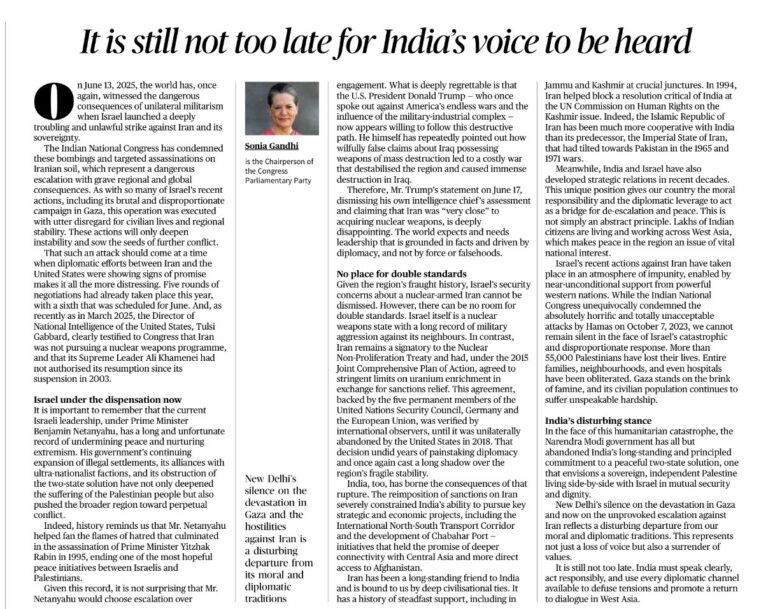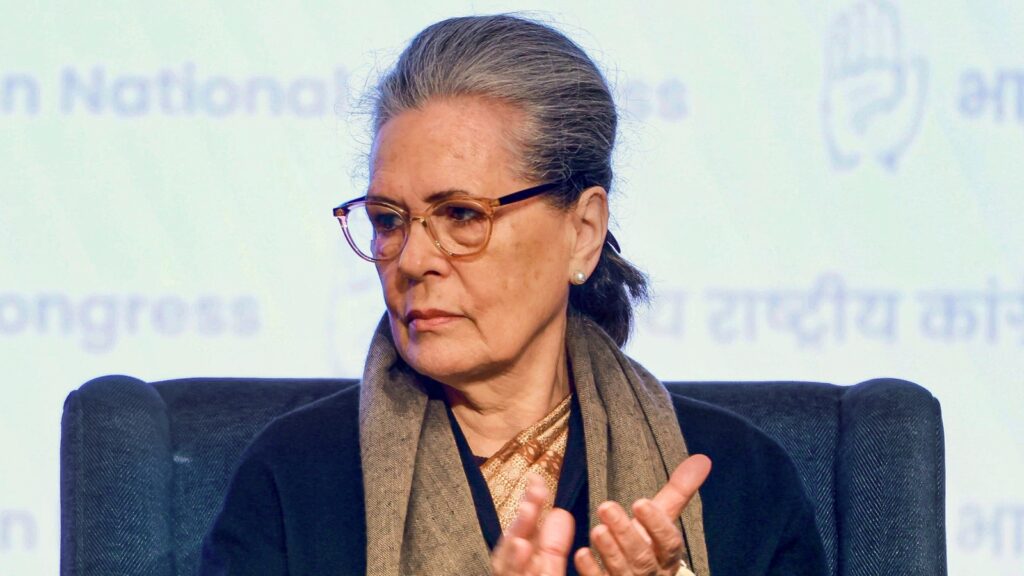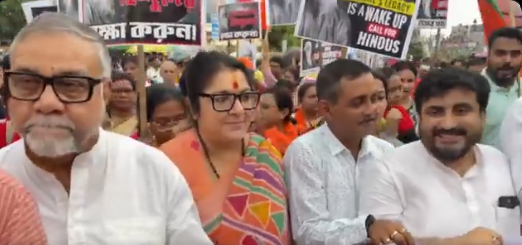Congress Criticizes India’s Silence, BJP Questions Sonia’s Motives and 26/11 Inaction
In a dramatic political exchange, Congress leader Sonia Gandhi’s condemnation of Israel’s recent airstrikes on Iran has sparked fresh controversy, drawing sharp rebuttals from BJP leaders who accuse her of selective outrage and political opportunism. At a time when the world remains divided over the fallout from Israel’s aggressive military action, Sonia Gandhi’s comments were aimed not only at Israel but also squarely at the Indian government, accusing it of moral abdication for its silence on the issue.
Her remarks have reignited the age-old Congress vs. BJP foreign policy debate — whether India should remain strategically neutral, or speak out on moral grounds. But what has stirred even more headlines is BJP leader Ram Kadam’s biting response, calling Sonia’s silence during India’s own moment of terror in 2008 — the 26/11 attacks — a glaring contrast to her newfound concern for global justice.
Sonia Gandhi Slams Israel and Modi Government’s Silence on Iran Attack

Sonia Gandhi, former Congress President and UPA chairperson, issued a strongly worded statement on Israel’s June airstrikes on Iran, which reportedly targeted key military installations and nuclear research hubs. Describing the attack as “a dangerous escalation with the potential to destabilize the entire region,” Sonia Gandhi declared:
“I strongly condemn the Israeli strike on Iran. The silence of the Indian government on this matter is nothing short of a surrender of our founding values. India has always stood for peace, dialogue, and non-alignment.”
Her reference to “surrender of values” was a clear swipe at Prime Minister Narendra Modi’s foreign policy, which the Congress party believes has tilted too closely toward the West and Israel, abandoning India’s traditional stance of balanced neutrality.
She went on to urge the government to “uphold India’s legacy as a responsible global player,” and criticized what she termed the “diplomatic silence of convenience” being maintained in the face of international aggression.
However, her remarks raised eyebrows even within foreign policy circles, especially given the delicate strategic balancing act India must play. With deep ties to Israel, strong defense partnerships with the U.S., and energy dependencies on Iran, India has opted for a carefully calibrated diplomatic silence rather than issuing statements that might jeopardize national interests.
Ram Kadam Hits Back: Sonia Silent During 26/11, Now Playing Global Expert
Within hours of Sonia Gandhi’s statement, BJP MLA and spokesperson Ram Kadam fired back with a sharp counter, accusing her of double standards and politicizing a sensitive international conflict for domestic gain.
“Where was Sonia Gandhi when the 26/11 attacks happened in Mumbai? Why was she silent then, when Indians were dying on our soil? Now she’s suddenly an expert on international affairs?” Kadam asked.
Mumbai, Maharashtra: On Congress leader Sonia Gandhi's editorial, BJP MLA Ram Kadam says, "Either Sonia Gandhi does not understand foreign policy, or she is deliberately trying to appease a particular religious community. India’s stance has always been very clear—India wants… pic.twitter.com/Yu6g5FFu8M
— IANS (@ians_india) June 21, 2025
He further claimed that Sonia’s condemnation of Israel was aimed at appeasing a “particular vote bank,” without naming any group directly. Kadam argued that by taking a position against Israel, Sonia was signaling sympathy toward a certain section of the electorate ahead of upcoming elections.
“Today, she is concerned about Iran. But when Pakistani terrorists attacked Mumbai, she did not say a word. That tells you everything about the kind of politics the Congress plays,” he said.
His remarks resonated with BJP’s broader positioning — defending India’s strategic autonomy while portraying Congress as opportunistic and inconsistent. For the BJP, India’s silence is a sign of strategic maturity, not moral weakness. Their argument is that foreign policy should be guided by national interest, not moral grandstanding for political mileage.
This latest clash reveals the deep ideological divide between the two parties when it comes to foreign affairs. For Congress, moral positioning and Gandhian ideals still form the core of its foreign policy narrative. For BJP, realpolitik and strategic alignment with like-minded powers like Israel take precedence. As global tensions rise, and as India emerges as a significant geopolitical player, the domestic political narratives surrounding foreign policy are bound to grow more charged. In this case, Sonia Gandhi’s statement may win her points among peace advocates, but BJP’s counterpunch has effectively raised questions about consistency, credibility, and electoral motivations.





















